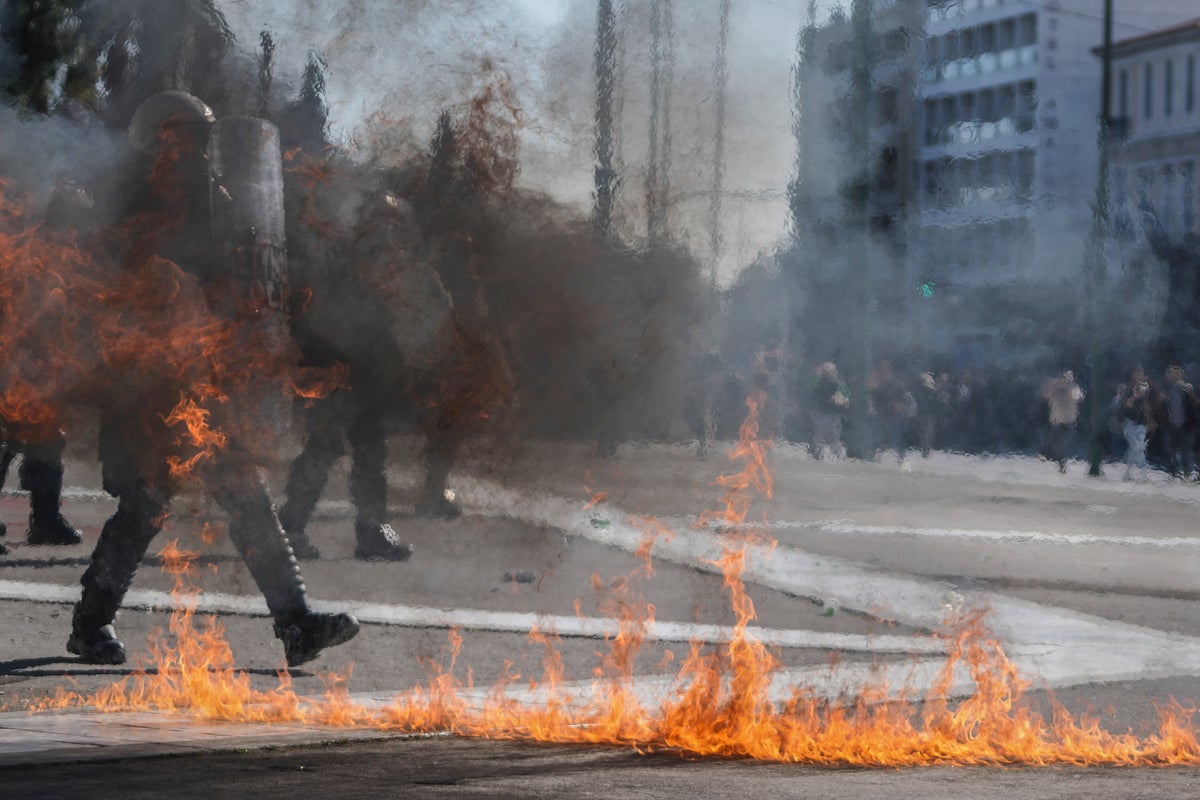
Tens of thousands marched in Athens and other cities across Greece on Wednesday to protest over the country’s deadliest train disaster as workers staged a nationwide, day-long walkout.
Unions and student associations organised the protests, while strikes halted ferries, public transport, primary schools and public hospitals.
A crowd of more than 40,000 marched in central Athens chanting "Murderers!" and "We are all in the same carriage".
More than 20,000 joined rallies in Thessaloniki, where several dozen youths challenged a police cordon. Twelve students from the city’s university were among the 57 killed in the 28 February head-on crash between two trains.
Police fired tear gas in the southern city of Patras, where a municipal band earlier played music from a funeral march while leading the demonstration. In the central city of Larissa, near the scene of the train collision, students holding black balloons chanted "No to profits over our lives!"
A railway worker accused of contributing to the disaster by placing the trains on the same track has been charged with manslaughter and other offences, while the country’s transportation minister and senior railway officials resigned the day after the crash.
The crash has sparked protests across Greece. "Message me when you get there," a placard in Athens read – a protest slogan that echoes a final message from a bereaved relative.
"You feel angry because the government did nothing for all of those kids. The public transport is a mess," said 19-year-old Nikomathi Vathi.
"We’re going to be here until things change," said another student, Vaggelis Somarakis. "We are the youth of this country and we’re not going to stop."
Greece’s conservative government, which had planned to call elections in the coming weeks, has promised to fix the ailing railway system.
Transport Minister George Gerapetritis told a news conference he understood the anger the accident had caused.
"No train will set off again, if we have not secured safety at the maximum possible level," he said.
Greece sold its state-owned railway operator, now called Hellenic Train, to Italy’s state-owned Ferrovie dello Stato Italiane in 2017 during its debt crisis. The sale was a term in the country’s bailout agreements with the European Union and the International Monetary Fund.
Reuters and Associated Press contributed to this report







